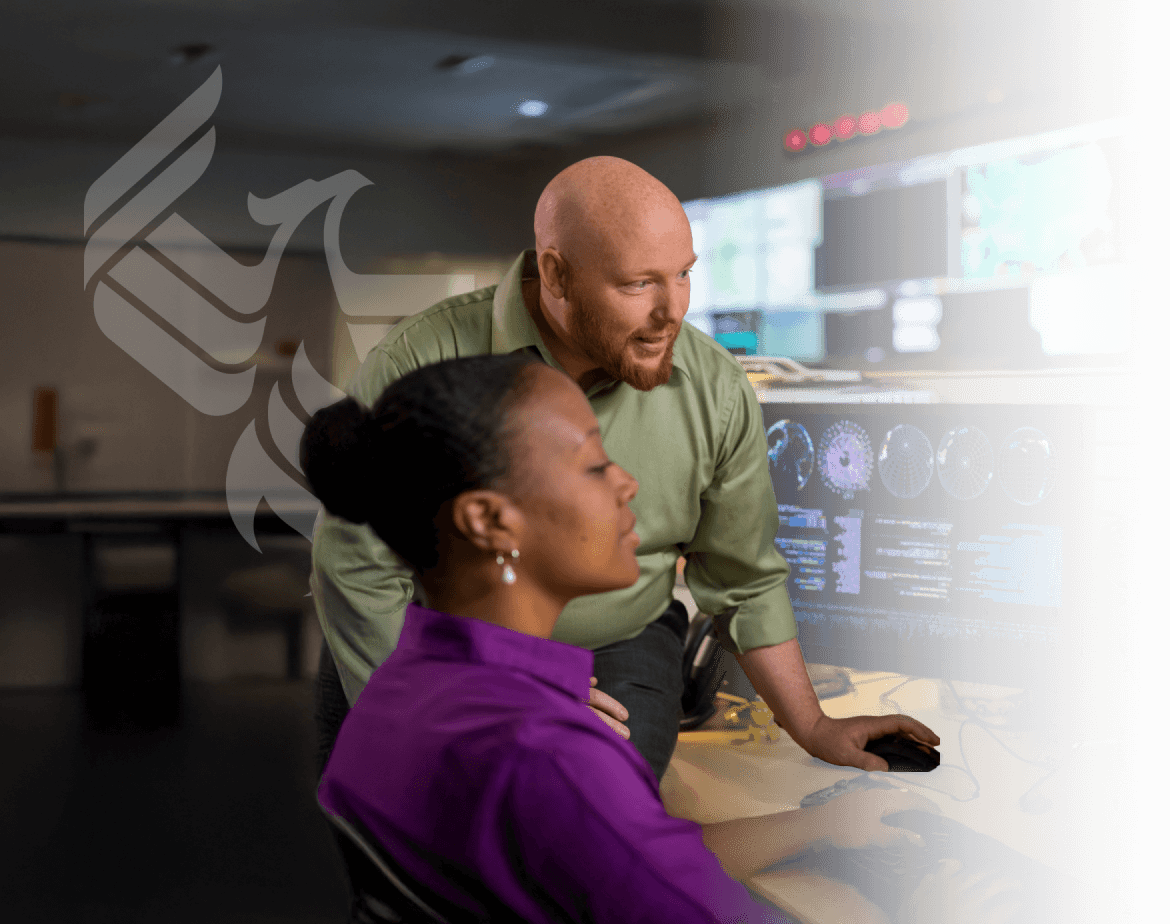Articles > Information Technology > What is the Internet of Things?
What is the Internet of Things?

Written by Michael Feder

Reviewed by Kathryn Uhles, MIS, MSP, Dean, College of Business and IT

The Internet of Things (IoT) has become increasingly prevalent in business and personal environments. According to Grand View Research, the global IoT market for retail is projected to reach $297.44 billion by 2030 — highlighting the rapid expansion and importance of this technology in today's world.
The definition of the Internet of Things
The Internet of Things refers to a network of technologically enabled devices (think sensors, software and actuators) that performs computing tasks in real time and then communicates and exchange data over the internet. IoT devices include anything from smartphones to smart refrigerators to cars with internet navigation systems.
A whole suite of interconnected internet technologies is required to establish a smart network of devices, including wireless communication protocols, cloud computing platforms, analytic tools to process data, and data storage devices, like hard drives, local area networks or remote data centers. More advanced IoT systems combine sensors with an artificial intelligence or machine learning component that has wireless internet connectivity to help automate decision-making in real time.
Here are a few typical IoT applications:
- A smart home where connected devices and sensors, like lights, security systems and other technology, can be controlled and monitored remotely
- Wearable technology that helps users perform work and track daily activity
- A vehicle with features like GPS navigation, wireless internet connectivity, collision sensors and automatic emergency braking
- Sensors on delivery trucks or cargo ships that monitor their whereabouts over the internet while en route and provide real-time updates.
As these examples, and many more, demonstrate, IoT devices are increasingly essential to jobs, life and social infrastructure.
Applications of the Internet of Things
From agriculture to manufacturing supply chains, retail to healthcare jobs, IoT devices, infrastructure and applications can improve efficiency, reduce costs and make day-to-day life easier for businesses. Here are just a few areas where it’s making a difference.
Education
IoT applications can enhance educational experiences by providing students with access to information and resources. For example, devices can automate mundane tasks like attendance tracking and scheduling, freeing up time for teachers to focus on instruction rather than paperwork.
Healthcare
The Internet of Things and IoT devices are revolutionizing healthcare work in several fascinating ways. A few notable examples:
- IoT tools and wearable technology for remote patient monitoring to help provide continuous care
- Smart beds with sensor technology that responds to patient movement and adjusts positioning and pressure as needed
- Smart pills or ingestible sensors that detect ingestion and provide information about the pill’s location
Agriculture
IoT technologies are equally transformative in the infrastructure of the agricultural sector. Precision farming, for example, employs IoT technologies like GPS-guided tractors and drones that monitor and manage crops. These devices collect data on crop health, soil conditions and more, allowing farmers to make data-driven decisions.
Manufacturing
Manufacturing is another sector experiencing a transformation via IoT devices. A notable example is the rise of smart factories where sensors on machinery monitor performance, detect malfunctions and predict maintenance needs. This visibility leads to better planning, reduces waste and increases efficiency throughout the supply chain.
Internet of Things career opportunities
As businesses become smarter and more connected, they’ll need dedicated career professionals working in computing and programming roles involving IoT projects, technologies and processes. Internet of Things career roles may be available in the following sectors:
Data analytics
Data analysts gather information from different sources, study it, synthesize it and use their findings to increase the efficiency and profitability of companies.
Primary responsibilities include:
- Collecting data from primary and secondary sources and maintaining databases
- Analyzing and interpreting complex data to identify patterns, trends and insights
- Creating visualizations, reports and presentations for business stakeholders
A Bachelor of Science in Data Science helps students gain a comprehensive understanding of data analysis techniques, statistics and related software tools.
Data research science
A data scientist, or research scientist, uses analytical, statistical and programming skills to interpret large data sets for valuable insights.
A data scientist’s duties include:
- Gathering, categorizing and analyzing complex data, which may include IoT sources
- Creating, testing, updating and validating algorithms and predictive machine learning models
- Using data visualization software to illustrate their findings in an easy-to-understand way
As of May 2023, data scientists earned between $61,070 and $184,090, with a median wage of $108,020, according to BLS.
BLS reports applicants typically require a bachelor's degree in mathematics, statistics, computer science, or a related field. However, some employers may be interested in applicants with a relevant master's degree.
Salary ranges are not specific to students or graduates of University of Phoenix. Actual outcomes vary based on multiple factors, including prior work experience, geographic location and other factors specific to the individual. University of Phoenix does not guarantee employment, salary level or career advancement. BLS data is geographically based. Information for a specific state/city can be researched on the BLS website.
Cybersecurity
An IT systems security analyst, or information security analyst, must primarily monitor an organization’s networks for security breaches. If one occurs, then it’s investigated, and cybersecurity measures need to be implemented to remediate it.
Cybersecurity professional implement end-to-end measures to safeguard sensitive information and prevent data breaches coming from the IoT and elsewhere, ensuring data integrity, confidentiality and availability.
A information security analyst’s responsibilities include:
- Monitoring for potential security breaches and conducting investigations if breaches occur
- Performing regular checks for vulnerabilities in computer and network systems
- Creating and setting security standards and best practices for their companies
As of May 2024 information security analysts earned between $69,660, and $186,420, with a median wage of $124,910, according to BLS.
To become one, job candidates typically need at least a bachelor’s degree in computer and information technology or a similar field. A bachelor’s degree in cybersecurity can be ideal for someone looking to work in this niche.
These are just a few examples of the types of roles that engage with the IoT. To decide which career is for you, do further research about each field, network with professionals and gain experience and education to see which aspects of IT interest you the most.
Learn more about programs working with the Internet of Things
If you’re interested in a career working with the Internet of Things, University of Phoenix offers information technology programs, including an advanced cybersecurity certificate, an associate degree in cybersecurity, a bachelor’s degree in information technology, a bachelor’s degree in cybersecurity, a bachelor’s degree in data science, and a master’s degree in cybersecurity.
Contact University of Phoenix for more information.

ABOUT THE AUTHOR
A graduate of Johns Hopkins University and its Writing Seminars program and winner of the Stephen A. Dixon Literary Prize, Michael Feder brings an eye for detail and a passion for research to every article he writes. His academic and professional background includes experience in marketing, content development, script writing and SEO. Today, he works as a multimedia specialist at University of Phoenix where he covers a variety of topics ranging from healthcare to IT.

ABOUT THE REVIEWER
Currently Dean of the College of Business and Information Technology, Kathryn Uhles has served University of Phoenix in a variety of roles since 2006. Prior to joining University of Phoenix, Kathryn taught fifth grade to underprivileged youth in Phoenix.
This article has been vetted by University of Phoenix's editorial advisory committee.
Read more about our editorial process.


Get your free IT Program Guide
Learn how 100% of our IT degree and certificate programs align with career-relevant skills.
Thank you
Download your pdf guide now. Or access the link in our email.


